Fulvia Luciano is an artist residing in South Carolina, USA.
Using her own photographs and illustrations as a starting point for her art, she paints, prints and stitches cloth and paper, layering bold lines, brush strokes, graffiti, and raw edges.
Fulvia’s work has been shown nationally and abroad, in juried exhibitions and galleries, is included in private collections, and is also in print.
In this interview, Fulvia tells us how the natural world influences her evocative designs and why a digital camera is never too far away to capture inspiration. We learn about her simple uncluttered approach and why she’s going bigger and embracing the abstract.
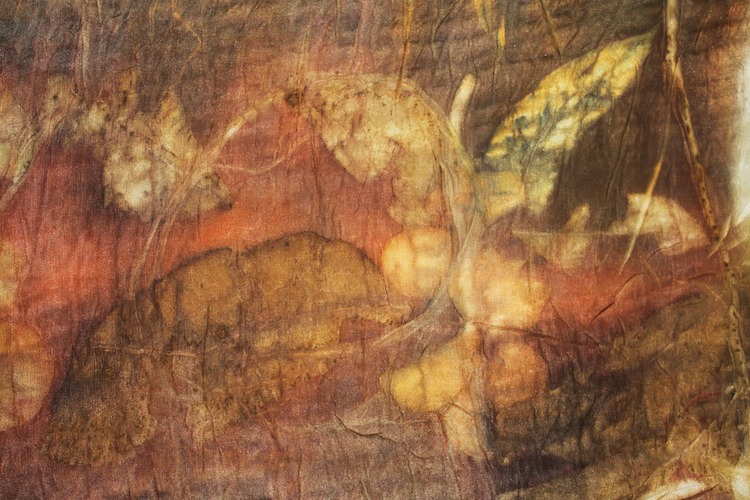
Doodling on fabric
TextileArtist.org: What initially attracted you to textiles as a medium?
Fulvia Luciano: It seemed to me that cloth might offer the pliability I was seeking unsuccessfully in copy paper, the only surface available to me at that time.
I was looking forward to figuring out how to place my doodles onto fabric by means of ink and thread. My eyes believed that thread and stitches could look like textural scribbles and doodles.
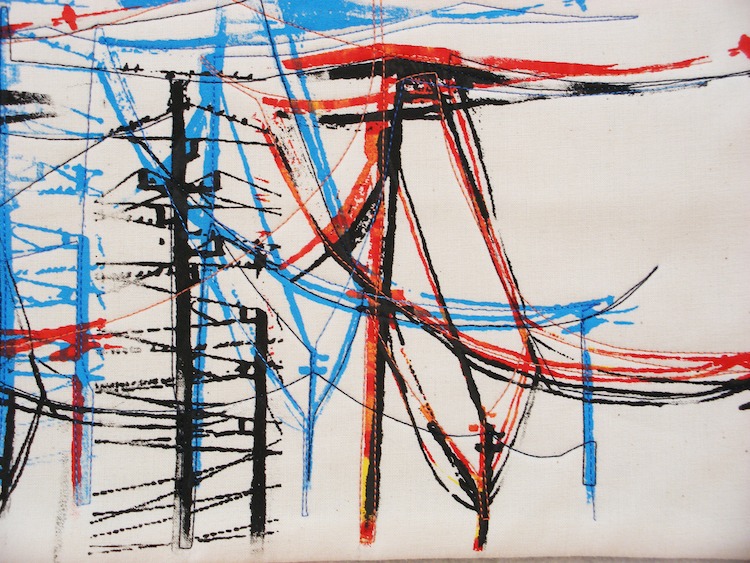
What or who were your early influences and how has your upbringing influenced your work?
My parents and my environment, Venezuela and Italy, shaped me.
My parents because they prepared me to be self-reliant and accountable, instilled in me respect for nature, love of books and ideas.
My environment because it was modest and pure, it made me look hard in order to find beauty and it rewarded me with its simplicity and honesty.
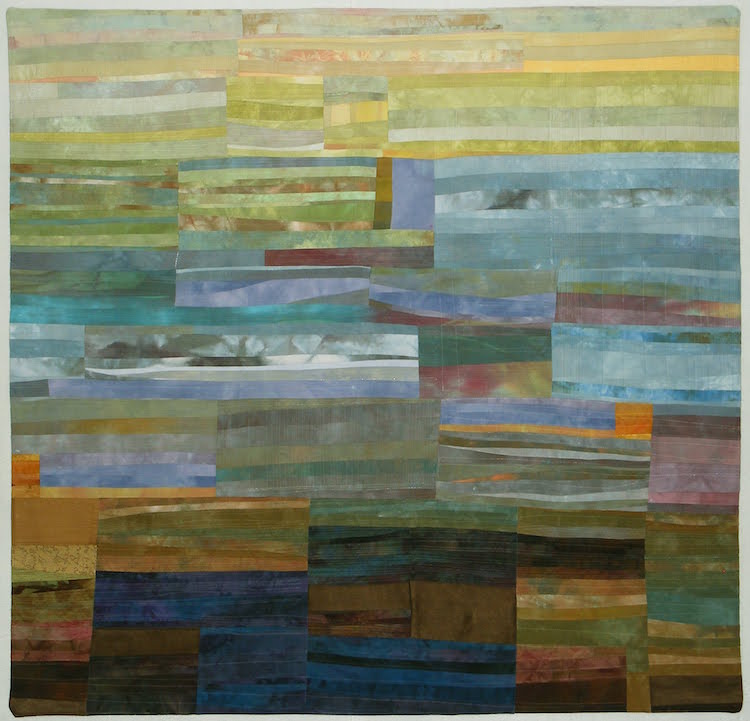
What was your route to becoming an artist?
I worked for many years in the legal field. When that no longer interested me, I sought to listen to a lifelong yearning to draw.
I did not think paper was the right avenue and I wondered if fabric could be the answer. I simply questioned the possibilities and that, for me, always leads to research and study.
Practice and experimentation soon followed and I have not stopped trying and learning 20 years later.
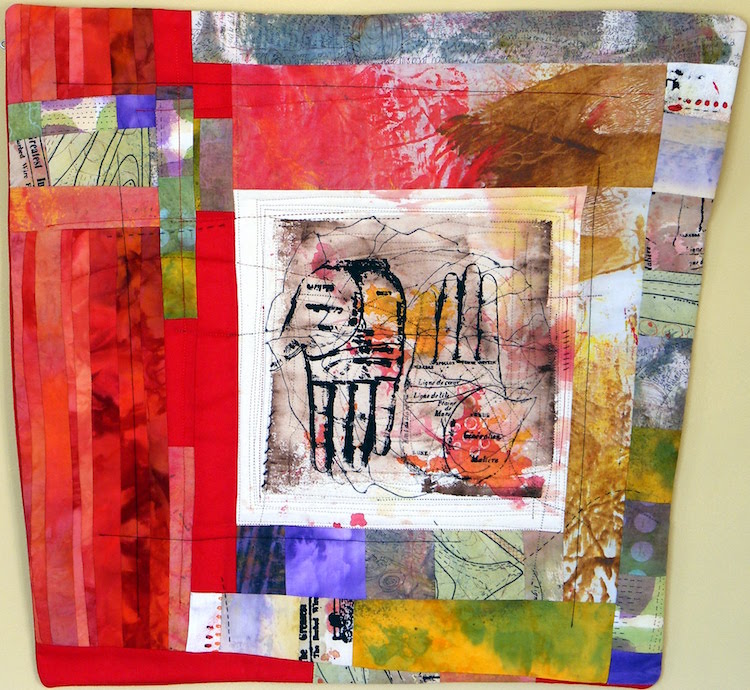
Keeping it simple
Tell us a bit about your chosen techniques. How do you use these techniques in conjunction with stitch and print?
My greatest love is surface design on fabric, creating screens for printing, drawing, dyeing, writing, transferring photos, painting.
When satisfied with that stage, I will move on to the stitching to complete the piece.
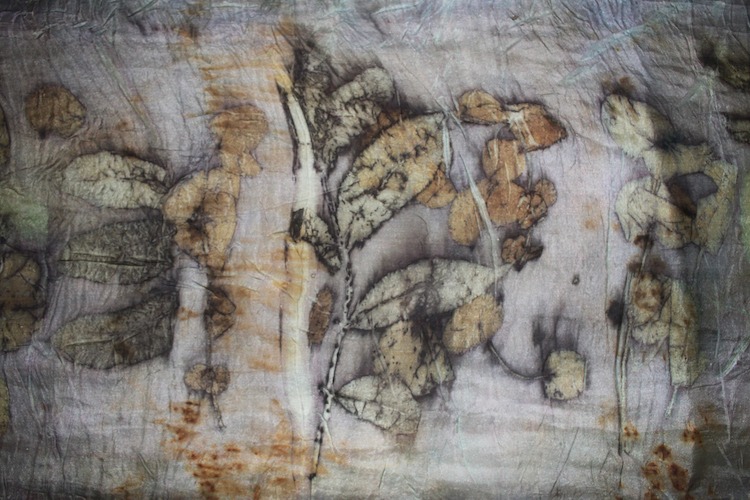
How would you describe your work and where do you think it fits within the sphere of contemporary art?
I know that through the years my work has become more and more abstracted but as for the latter part of your question, I simply cannot afford the siren song of comparison to others.
Do you use a sketchbook? If not, what preparatory work do you do?
I keep limited notes during experimentation only; I try to outline what I am aiming for, how I will attempt it specifically, and whether the outcome is to be discarded or to be built upon.
A digital camera is often a useful ally that fills in the gaps.
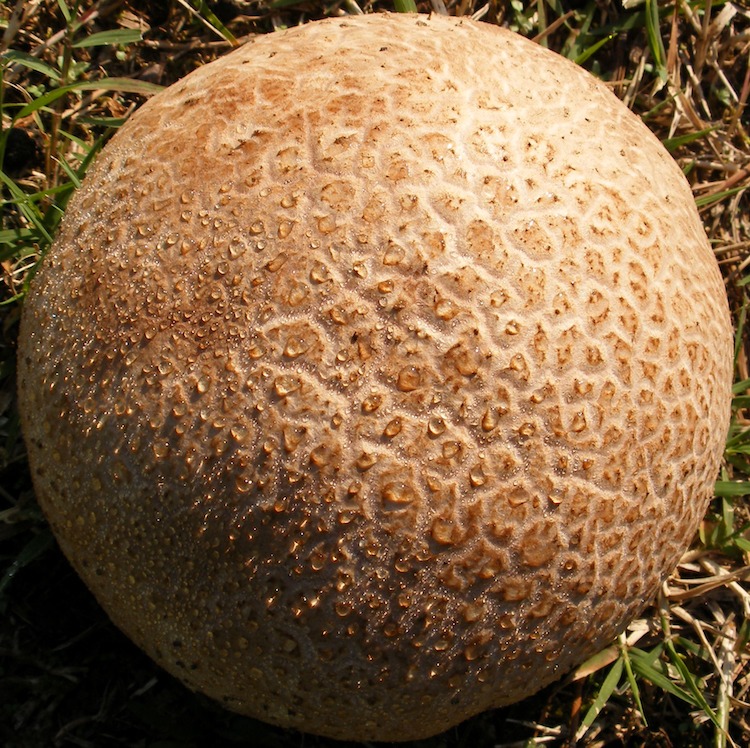
What environment do you like to work in?
I like to work indoors in my studio, in silence usually, and without clutter. I keep things simple so as not to confuse or derail my mind from what it is trying to achieve.
What currently inspires you?
Nature, as always. It provides me comfort, ideas, colours, shapes, sounds, textures, temperature, surprises, lessons.
I need all that and more. Beyond that, I am always interested in architectural and geometric forms.
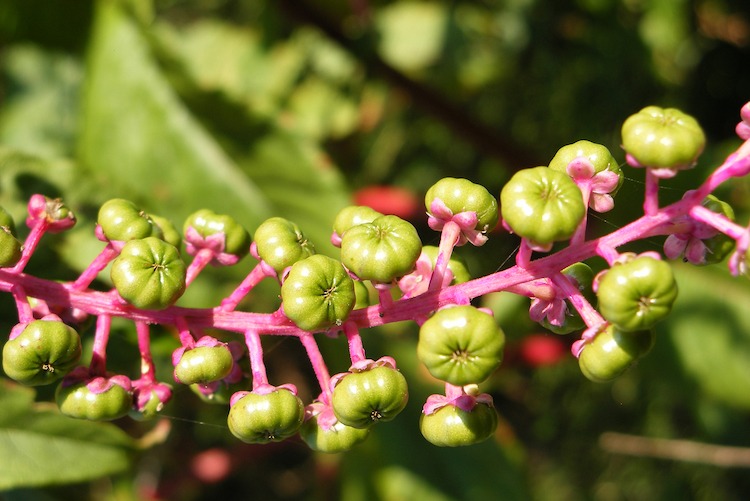
How has your work developed since you began and how do you see it evolving in the future?
My work has changed from representational to abstract. I also used to work on one piece at a time and I no longer do that.
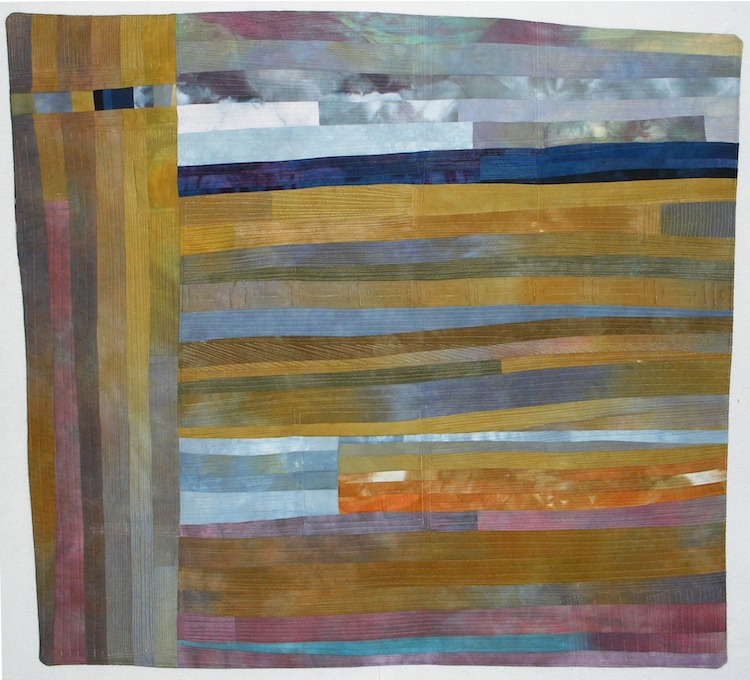
My scale has changed as well, from small to large, as the physical space constraints I once had no longer are there. I am currently working on draping the human figure, moving my work from 2d to 3d.
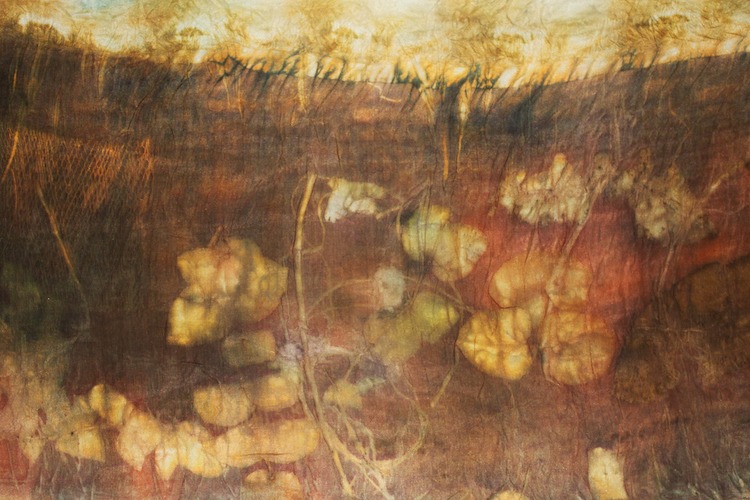
Digging deep
What advice would you give to an aspiring textile artist?
Go wide. Go deep.
Be open to everything. Always.
Be curious about everything. Always.
Read. Everything. Always.
Know yourself. Deeply.
Do not compare yourself to others.
Do the work. Be rigorous.
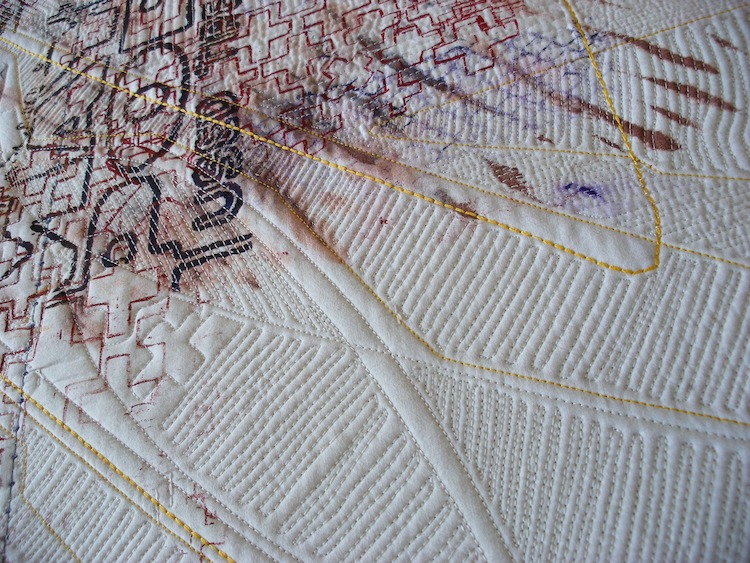
Think of life as a full-time laboratory. Build your skills through endless practice; choose the few that are important to your particular passion and master them so that the moment your imagination ignites, you will have at your disposal the necessary arsenal to manifest that spark into something concrete.
Be choosy, be selfish with your time. Devote as much of it as possible to what you love. Depth and breadth of knowledge and experience take time.
Be observant.
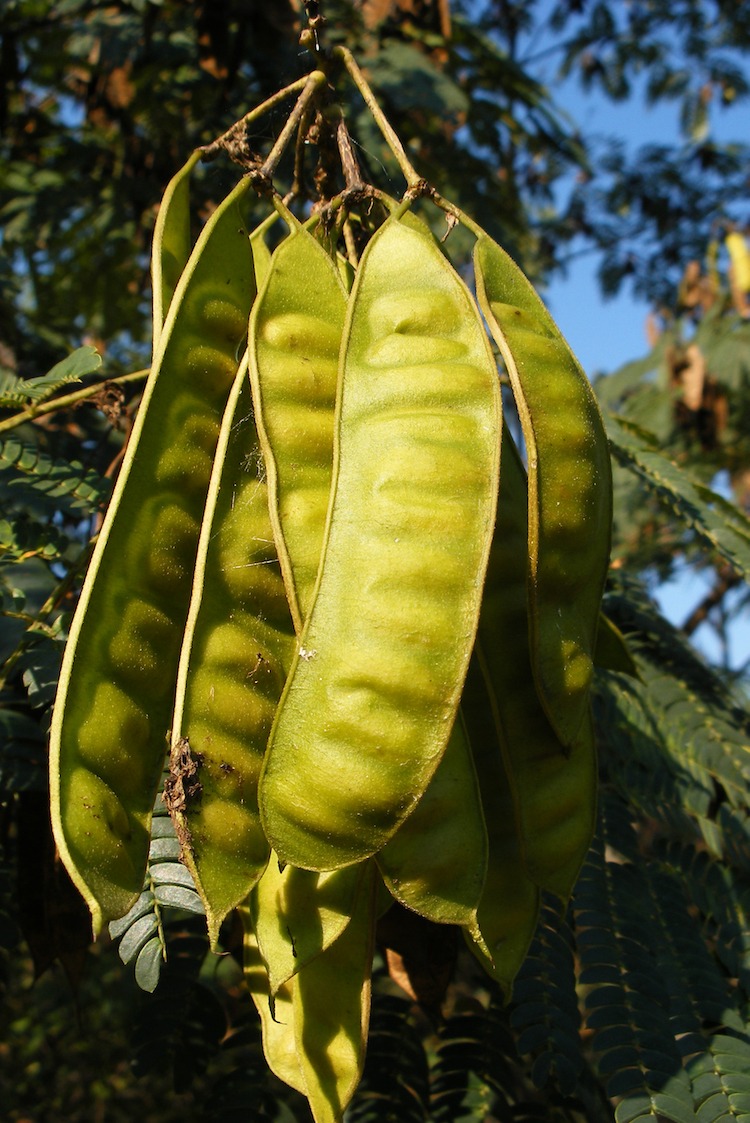
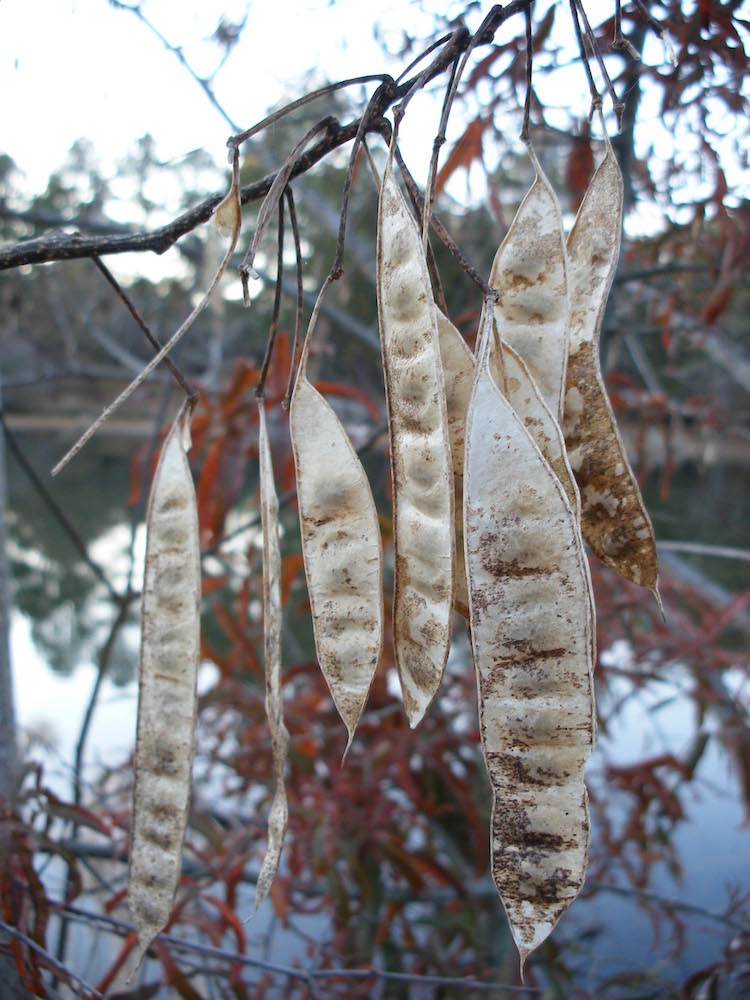
Can you recommend 3 or 4 books for textile artists?
Just read, about any subject. It all becomes archived in your brain and that will be the personal encyclopedia from which you will draw ideas.
Your mind is your powerhouse, your greatest ally; feed it.
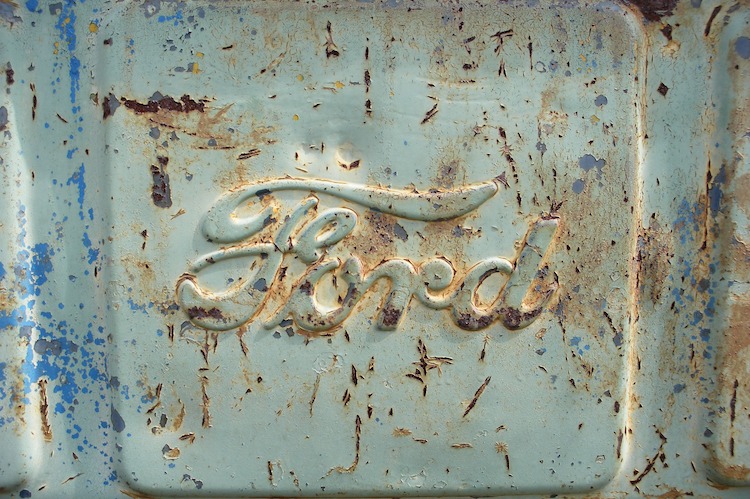
What piece of equipment or tool could you not live without?
A camera, any kind of camera.
Socially, it is an instrument that allows me to be present but not necessarily participating, making it possible for me to eavesdrop through my eyes; in nature, it allows me to record and capture infinite details that often my aging eyes cannot quite see while being still, keeping quiet. I am an introvert at heart.
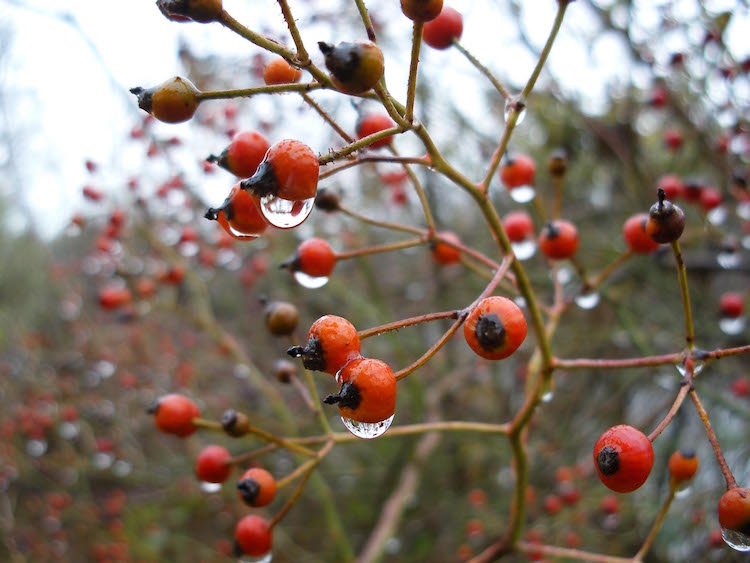
Do you give talks or run workshops or classes? If so where can readers find information about these? Where can readers see your work this year?
My studio is always open by appointment. People are welcome to come see what I am currently working on, to ask questions or to participate in a class. I can be reached through my blog.
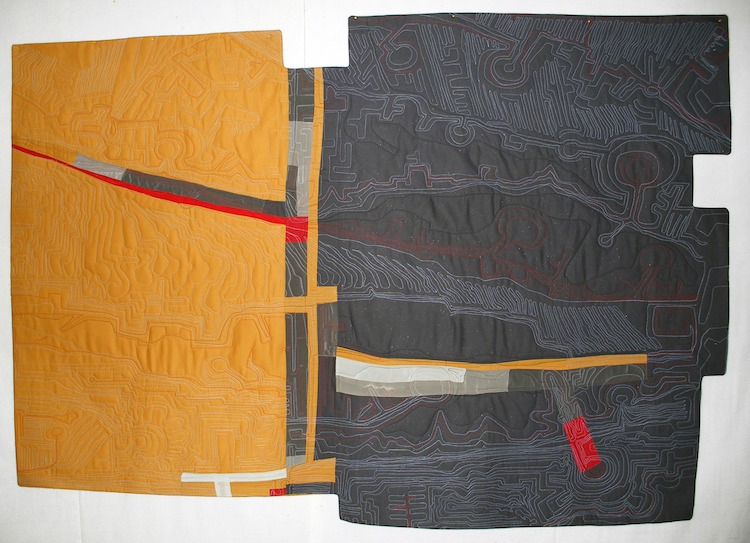
Let your friends know about this artist’s work by sharing the article on social media. It’s easy – click on the buttons below!
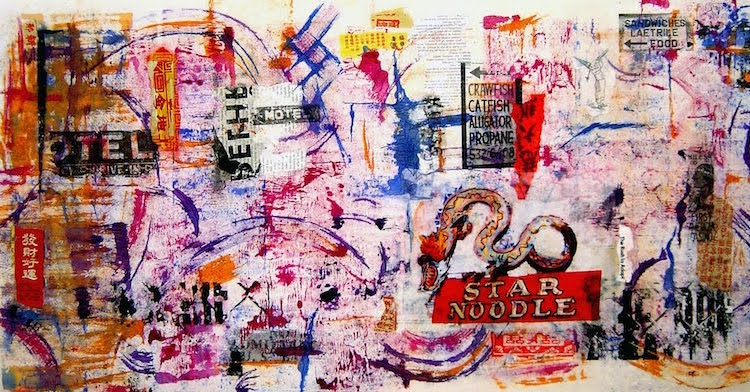
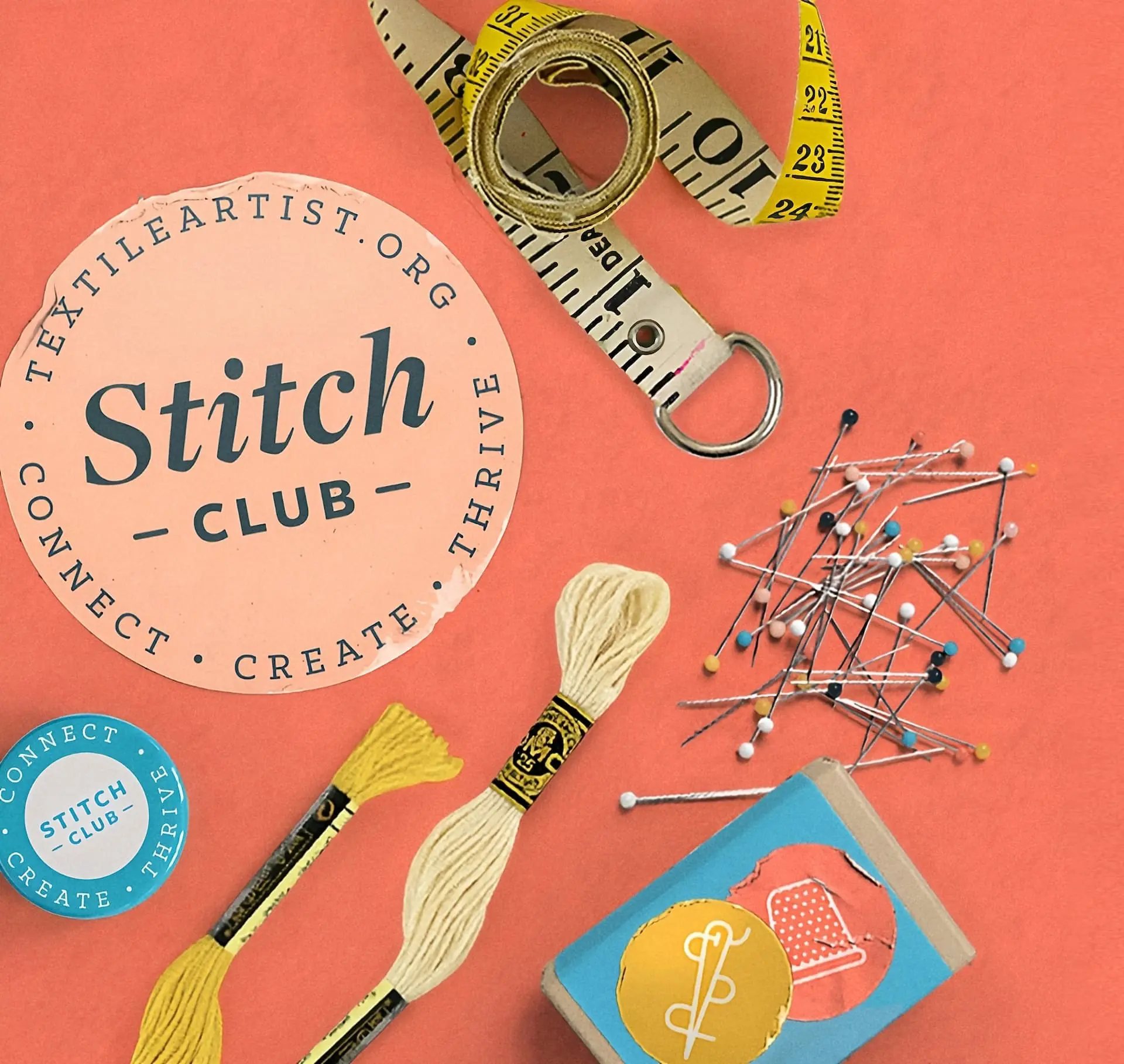
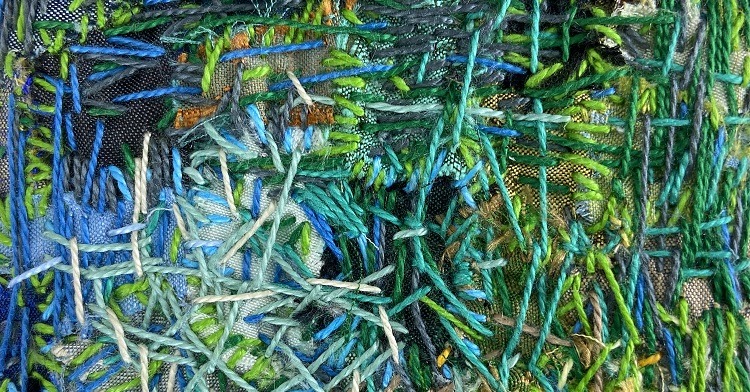
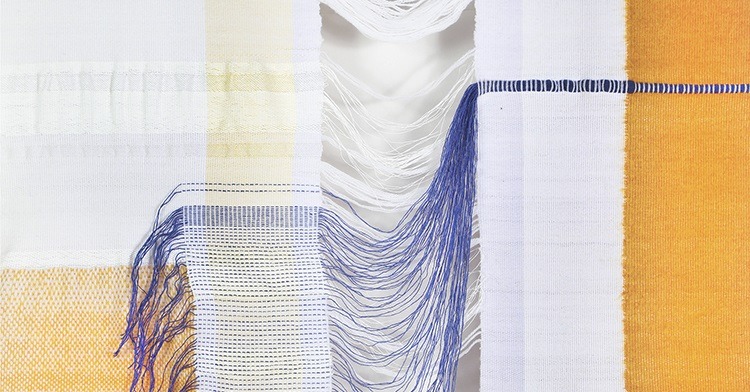
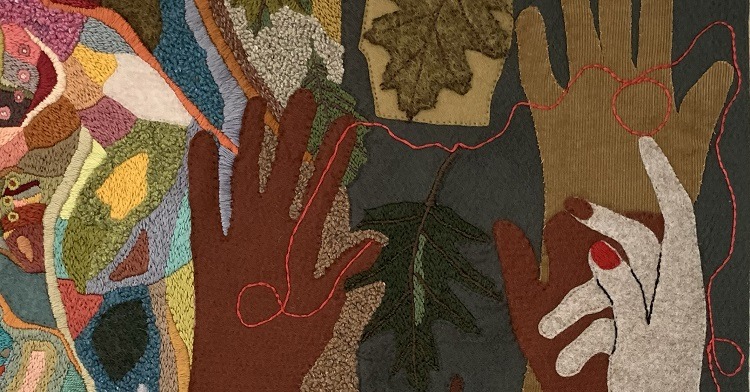
![Contemporary textile artist Lisa Solomon|Lisa Solomon - Sanjusangendo crowns [gold] - detail](https://www.textileartist.org/wp-content/uploads/Lisa1.jpg)
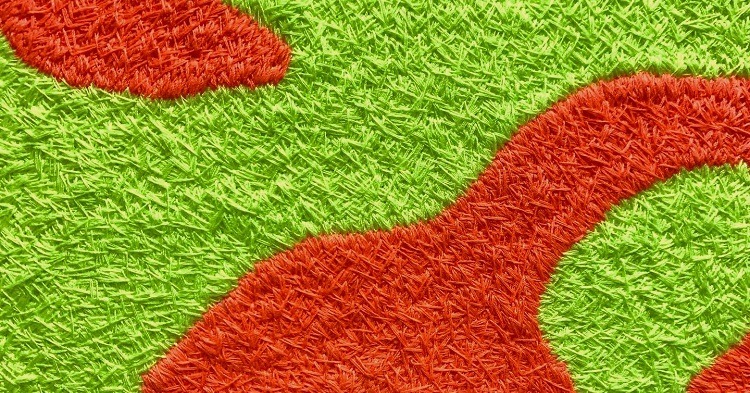
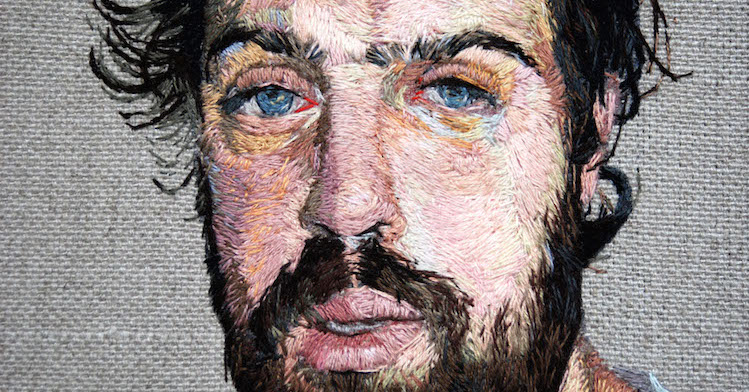
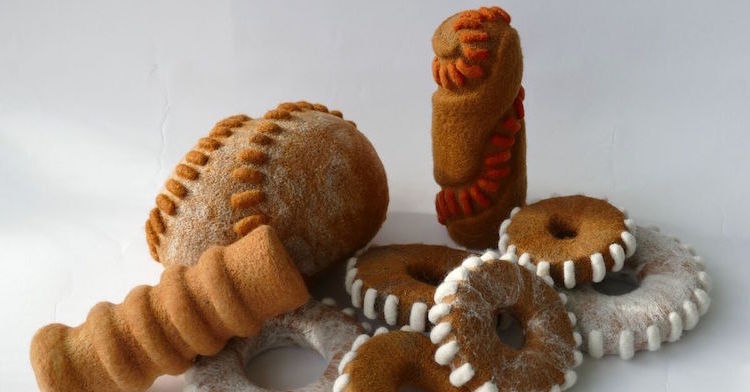
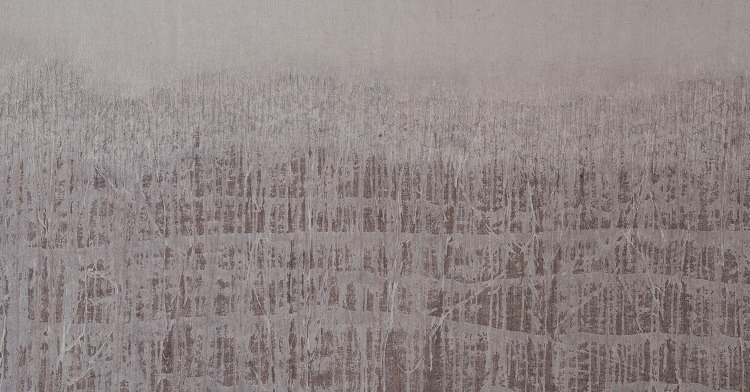
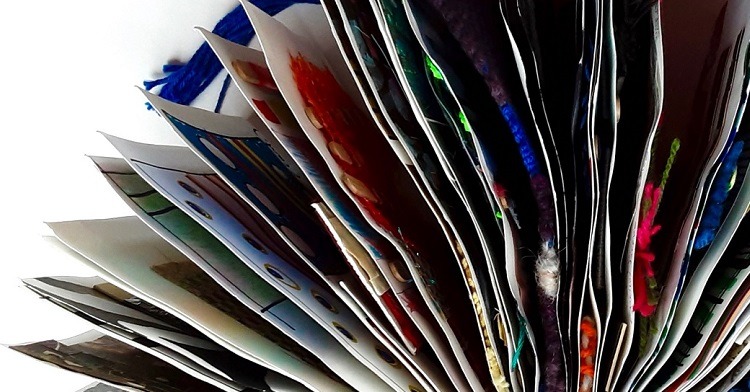
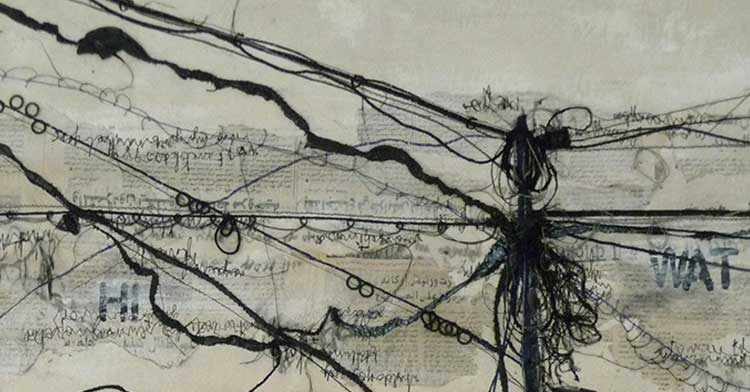
5 comments
Sylvie Martin Rodriguez
I loved everything in this interview !!!
Thank you !
senda
Thanks for the post. Amazing the product 🙂
Kathleen March
Absolutely gorgeous images and words. Much to think about, and I will.
Sue Clarke
That was a really good interview. I look forward to my weekly emails from Textileartist.org there is always something interesting to read or an artist to rediscover, the interviews are always incisive and I love the artists talking about their process, always inspirering.
Thanks for all the work you both put in.
Melanie
Fabulous article. Know thyself. So wise